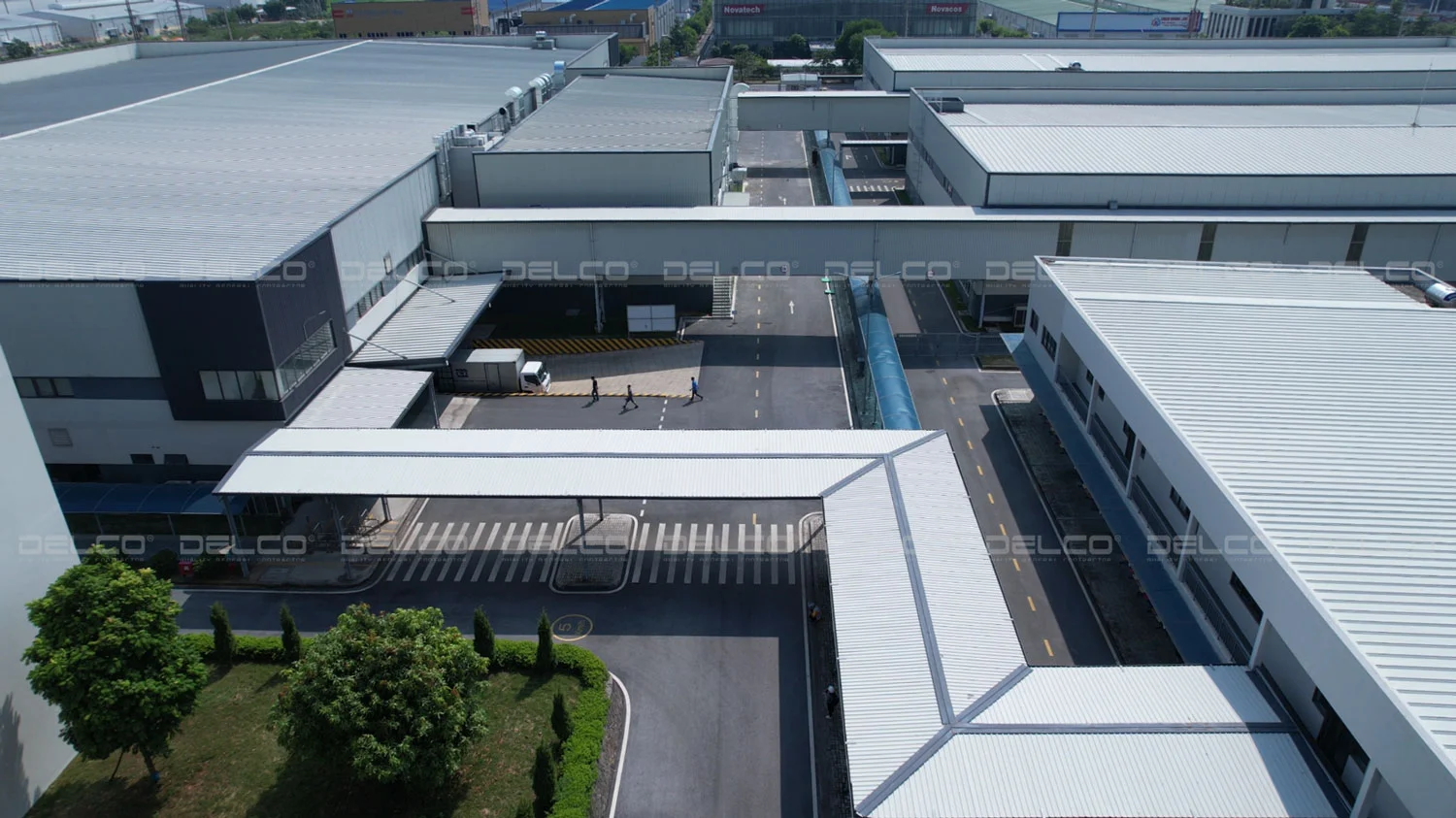Vietnam’s economy over the past decade has continued to record strong progress. Per capita income has increased significantly—from about USD 1,160 in 2010 to around USD 5,000 in 2025—moving the country into the upper-middle-income group. Despite facing numerous global fluctuations, Vietnam has maintained stable growth momentum. In 2025, several breakthrough signals were recorded: Q3 GDP grew 8.23%, the first nine months reached 7.85%, exports and FDI rebounded strongly, reaffirming Vietnam as one of the fastest-growing and most resilient economies in Asia.
A steadily growing economy with high resilience
During the 2011–2015 period, Vietnam’s economy grew at an average of 5.9% per year; from 2016–2019 it reached 6.8% per year, while maintaining macroeconomic stability as CPI fell from 18.6% in 2011 to below 4% during 2016–2020. Major economic balances were secured, with total social investment capital from 2011–2020 reaching nearly VND 15 quadrillion, providing a foundation for sustainable growth.
Entering the 2020–2025 period, growth continues on a positive trajectory with strong recovery: GDP increased by 8.02% in 2022, 7.09% in 2024, and reached 7.85% in the first nine months of 2025. Inflation remained controlled at around 3–3.3%, and key macro indicators continued to stabilize, showing strengthened economic fundamentals and rising resilience.

Vietnam GDP chart from 2014 to September 2025
Along with stable economic growth, foreign investment attraction continues to be a highlight. In just the first nine months of 2025, Vietnam recorded USD 28.54 billion in registered FDI—strongly increasing compared to previous years and the highest level in the 2021–2025 period. This capital includes USD 12.39 billion in newly registered capital, USD 11.32 billion in adjusted capital, and USD 4.83 billion in capital contribution and share purchases, showing that international investors are expanding operations and committing long-term to Vietnam.
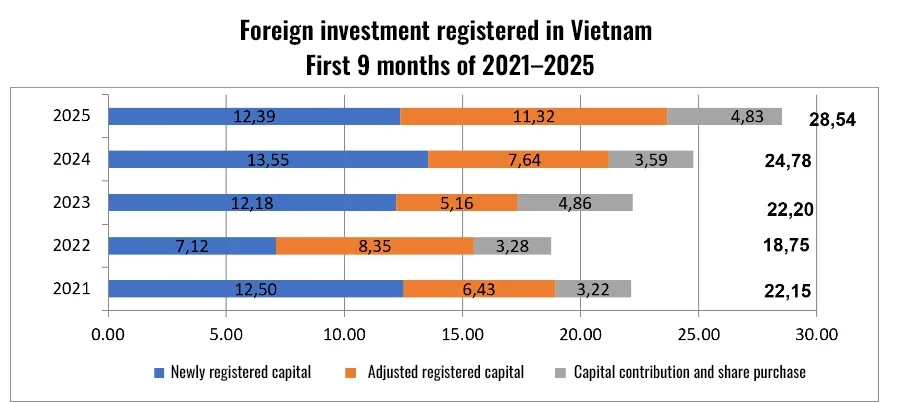
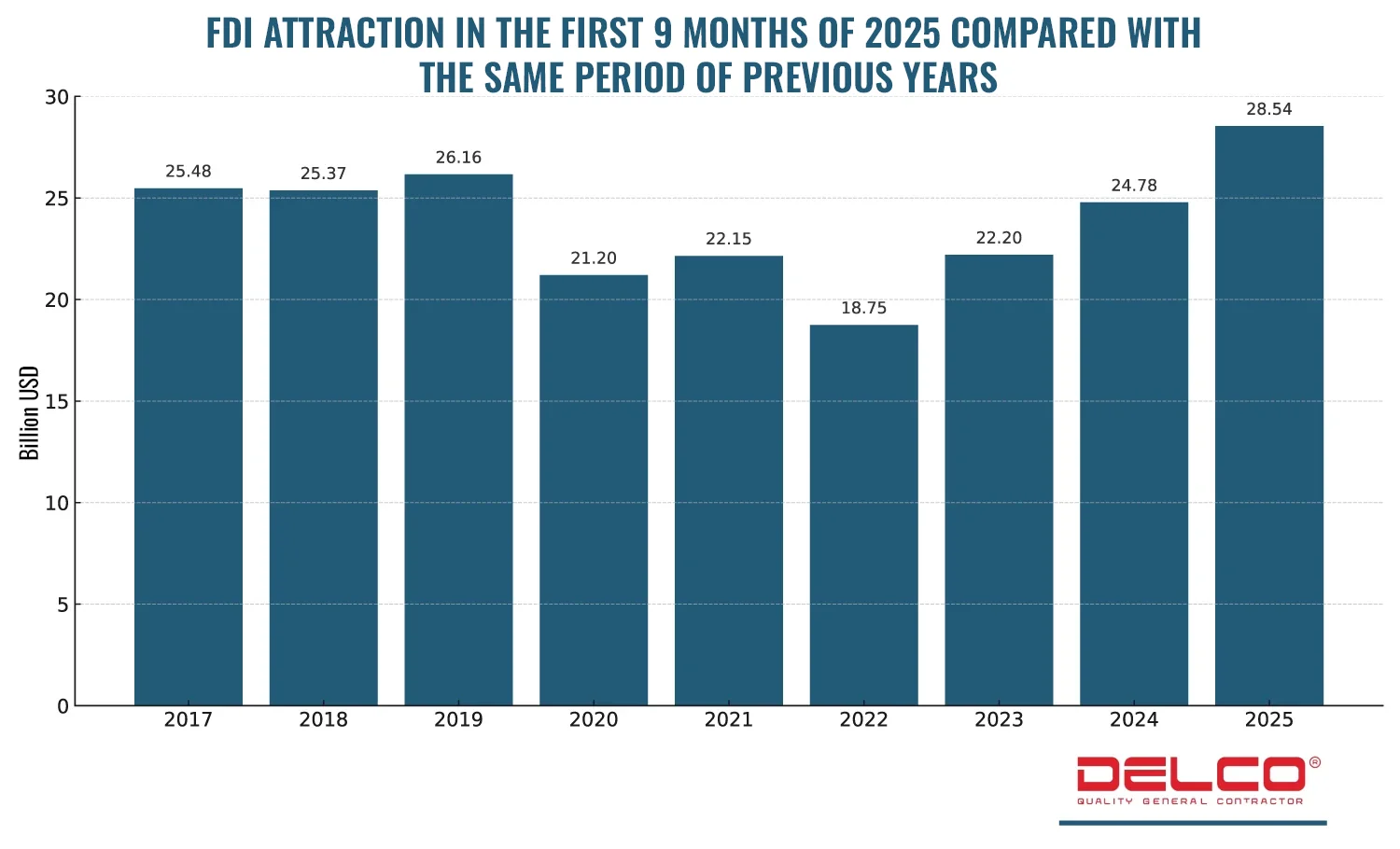
The shift in economic structure is a remarkable achievement. The proportion of agriculture in GDP has decreased from 18.9% in 2010 to an estimated 12% in 2025. Conversely, the industrial–construction and services sectors continue to increase strongly, affirming the trend of industrialization and modernization.
Vietnam is focusing on developing the digital economy and green economy. Many policies have been issued to support the development of high-tech manufacturing and processing industries, gradually turning Vietnam into a global production and supply hub.
- Green growth: Legal frameworks and sustainable development strategies, along with the Net-Zero 2050 commitment, are driving renewable energy and clean production projects.
- Digital economy: The digital economy’s contribution to GDP continues to rise, targeting around 20% of GDP by 2025, creating new growth engines for services and industry.
Economic restructuring towards industrialization
The period from 2010 to 2025 shows Vietnam’s economic structure shifting toward greater modernization and sustainability. In 2010, the agriculture–forestry–fishery sector accounted for nearly 19% of GDP, but by the first nine months of 2025, this ratio had fallen to around 11.30%, reflecting a reduced reliance on agriculture and increased focus on higher-value sectors.
At the same time, the industrial and construction sector accounted for 37.58% of GDP, continuing to play a key role in growth thanks to expanded production, infrastructure investment, and the development of processing, equipment, and materials industries. The services sector reached 42.92%, showing significant expansion in areas such as trade, transportation, finance, tourism, and digital-economy-related services.
GDP growth in the first nine months of 2025 reached 7.85%, with stable increases across all three sectors. Agriculture–forestry–fishery grew 3.83%, industry and construction grew 8.69%, and services grew 8.49%. This indicates a well-balanced economic structure capable of adapting effectively to market changes.
From the perspective of end-use, final consumption increased by 8.07%, asset accumulation increased by 8.52%, exports of goods and services rose 15.51%, while imports increased 16.75%, reflecting the dynamism of an open economy.
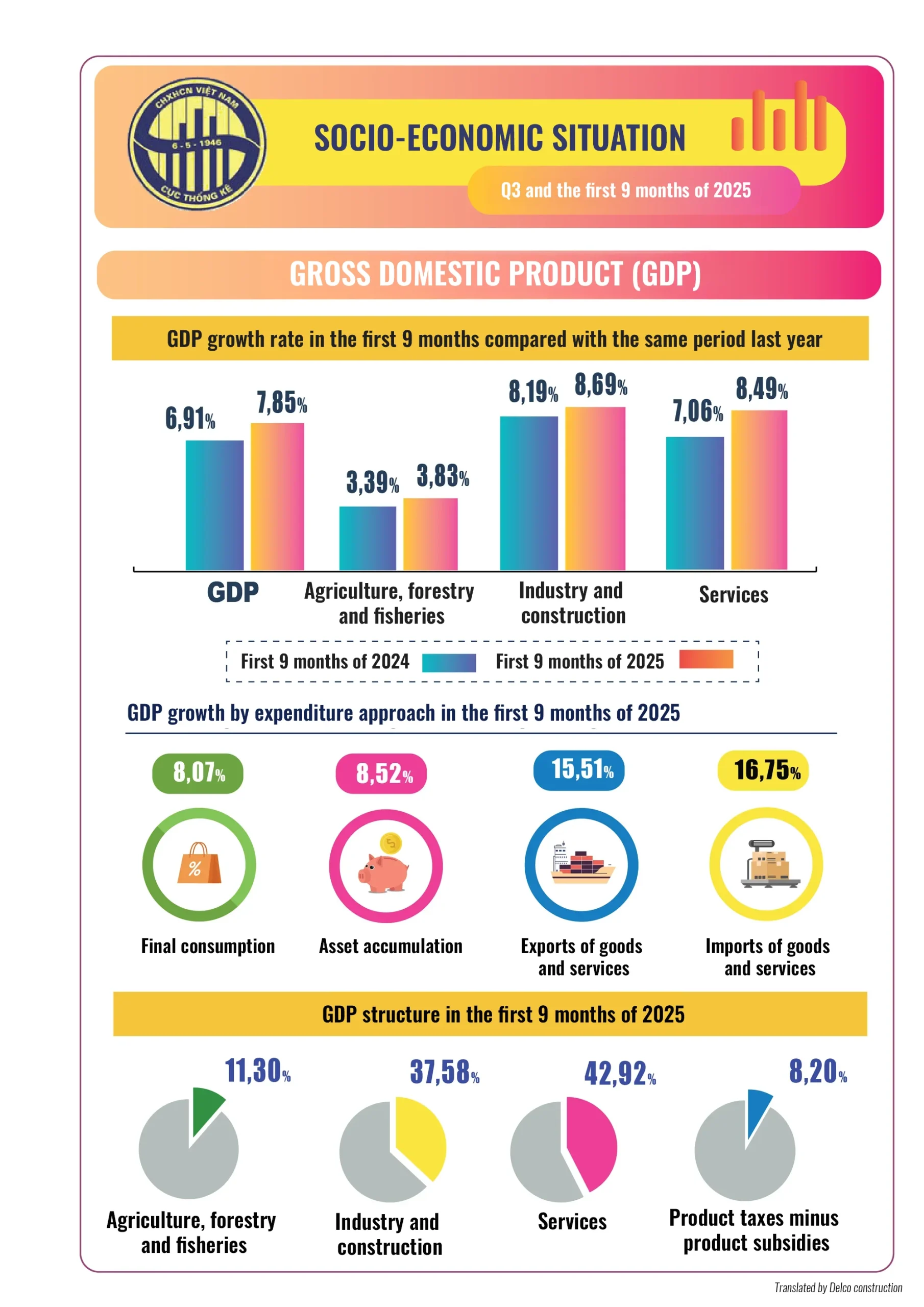
Vietnam’s economic growth over the years and structural transformation
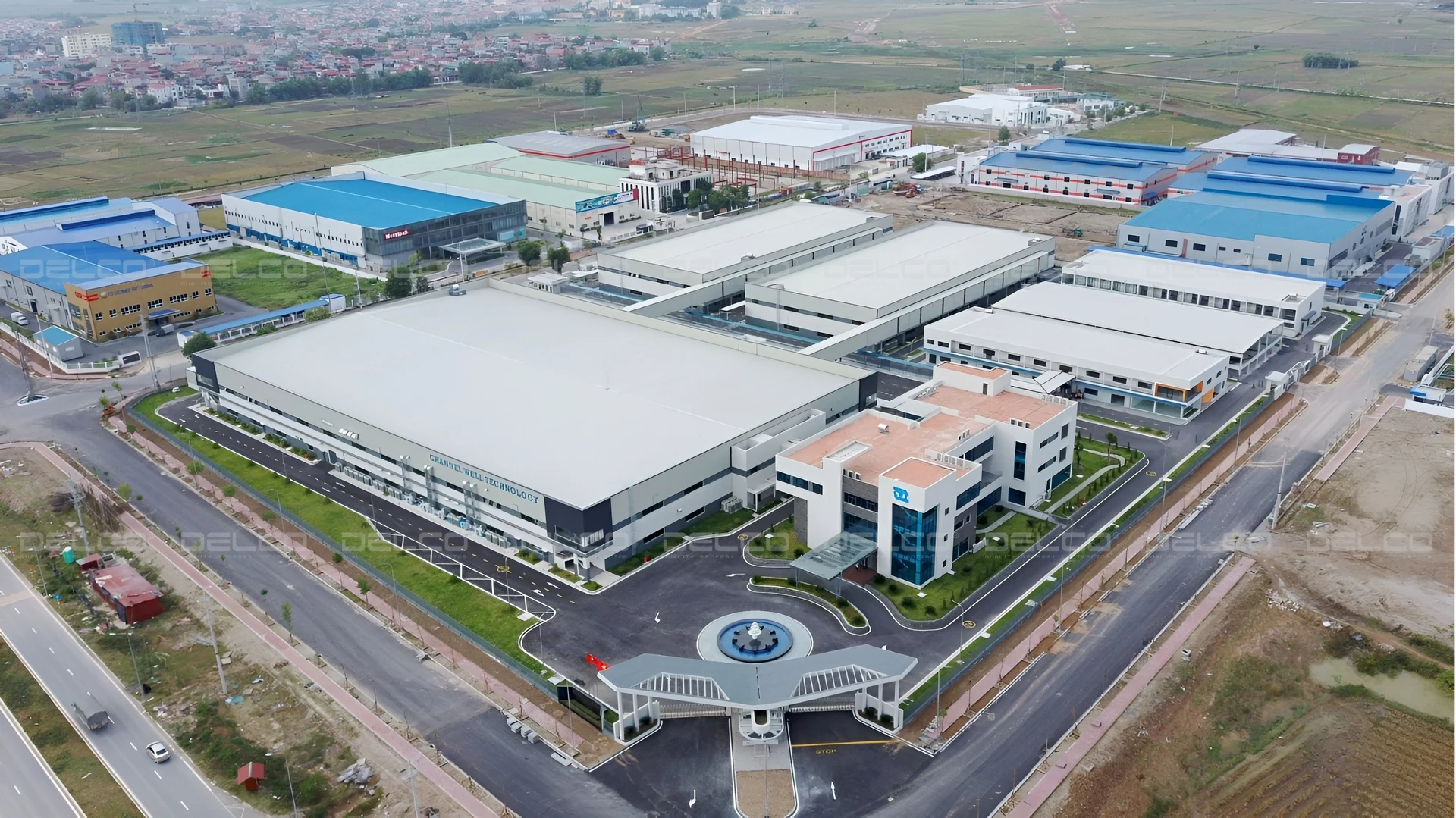
Power Plus Technology Smart Factory Project – one of the Taiwanese FDI electronics manufacturing projects for which DELCO served as the Design–Build General Contractor.
Social welfare issues
Paying attention to social welfare, efforts to develop human well-being in terms of economy, education, and health have contributed to strengthening the foundation of Vietnam’s economy over the past decade.
| Indicator | 2015 | 2023 | Estimated 2025 |
| Human Capital Index (HCI) | 0.67 | 0.69 | Around 0.70 |
| Life expectancy | 73.2 years | 74.5 years | Around 75.0 years |
| Trained labor rate | 21.9% | Around 27.6% | Around 29.5% |
The average life expectancy of Vietnamese people has increased, reflecting major improvements in healthcare. This level is higher than that of many countries with similar income levels.
The quality of the workforce has improved significantly. The proportion of trained workers with degrees or certificates continues to rise, meeting the demands of high-tech industries and the digital economy.
With stable macroeconomic foundations, the trends of industrialization–modernization combined with the digital economy, and an increasingly improved labor force, Vietnam is strengthening its position as an attractive and high-potential investment destination for 2025 and the years ahead.
Source: NSO, Government Information, MPI, The Human Capital Index


